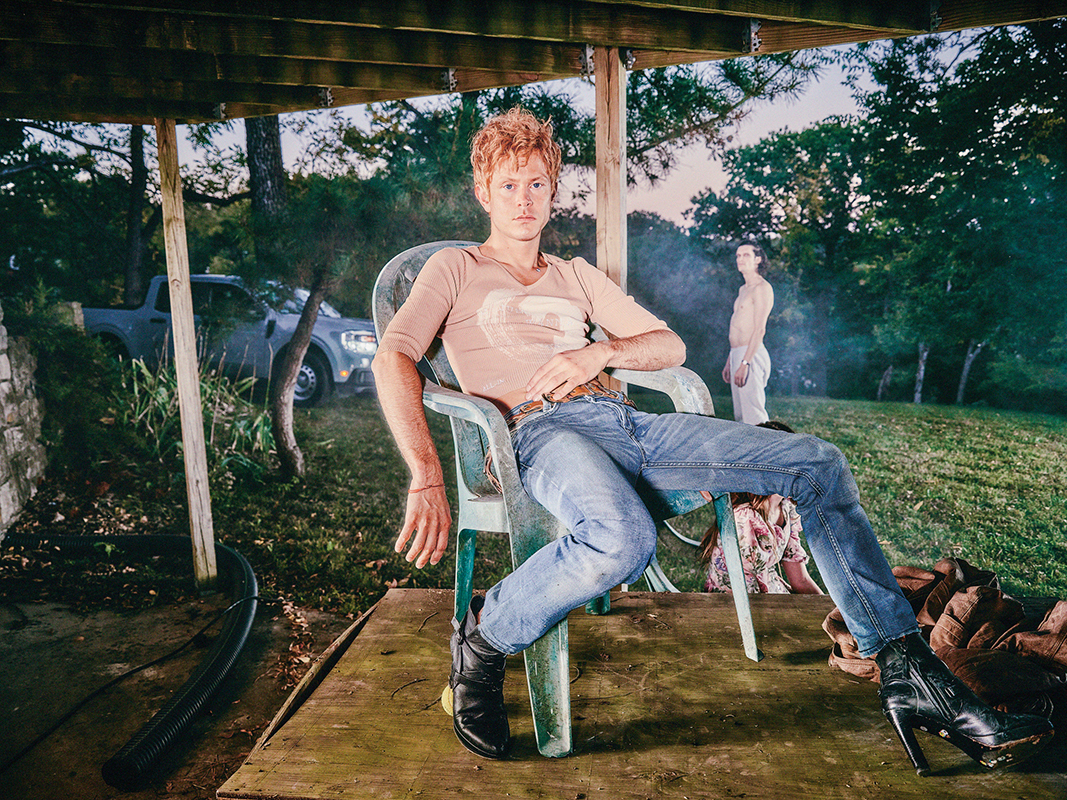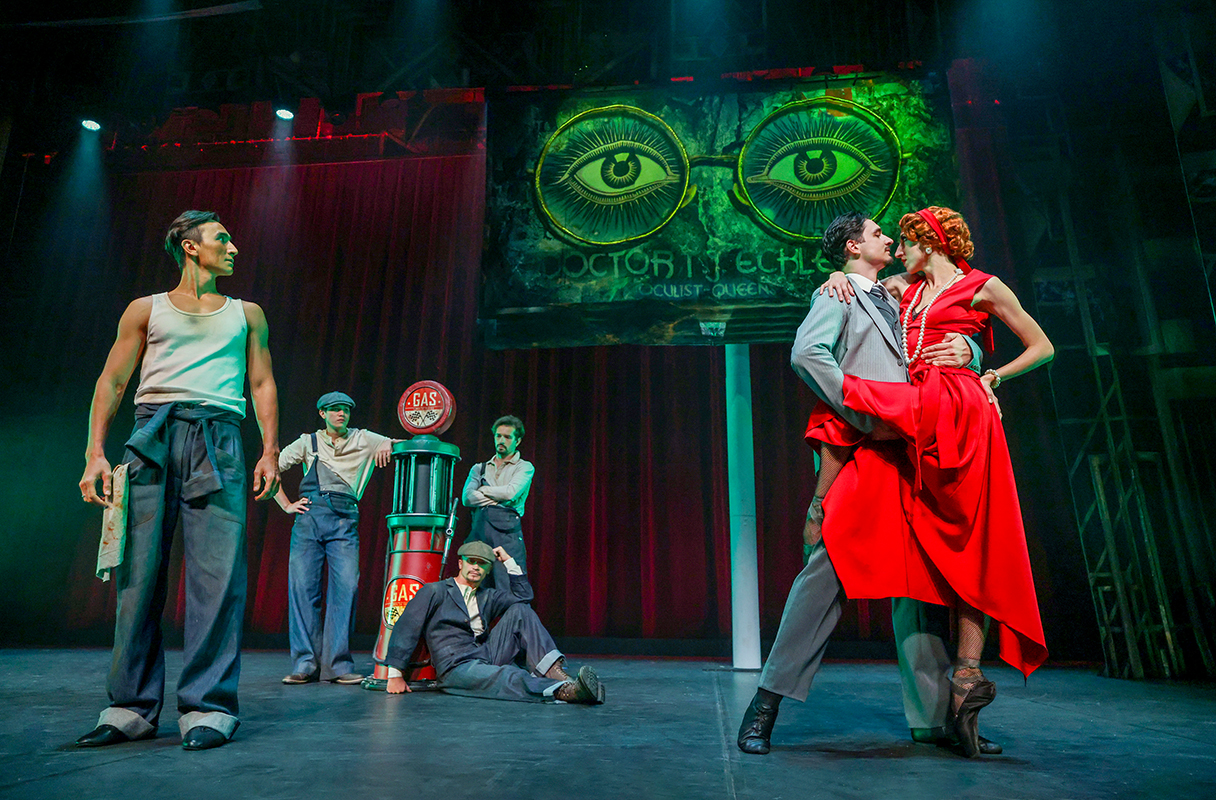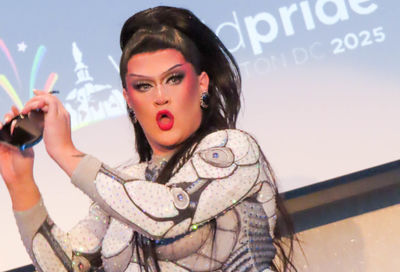DC Opera Review: Washington National Opera’s ‘Don Giovanni’
How do you present Mozart's problematic, sexist Don Giovanni in the current #metoo climate?

What a difference a decade makes. A lot has happened since Don Giovanni last imposed himself on the Washington National Opera stage, and one must wonder whether it has left the latest production rather tied up in knots. While the 2007 version was full of bare-chested swagger and scenic splendor, the current production is restrained to the point of removed.
Of course, despite its beautiful music, Don Giovanni (★★★☆☆) is bound to be a problem in this day and age. As much charisma as the title role invites, the entire point of the opera is a powerful man’s insatiable need to sexually coerce women — be it wearing them down with his “ardor,” using his aristocrat’s status to threaten their livelihoods, or (though only suggested) physically overpowering them. He is a sexual predator of the highest order. And although there is the drama of Donna Elvira’s undying love for him and some pending righteous revenge, much of the action requires sitting through a depressing catalogue of behaviors and attitudes that mirror today’s version of the entitled male mind-set, be it Epstein, Weinstein, or Trump’s “pussy grabbing” braggery.
For many, the entertainment value of this — no matter how thoughtfully staged–– may be wanting. And although the title character’s comeuppance is as predictable as it is final, disappearing in some version of a puff of smoke doesn’t exactly mirror today’s struggles to bring viable court cases that succeed against the systemic odds to result in conviction and actual jail time. It just isn’t the kind of catharsis that can satiate the current hunger for justice. Put simply, it might all work a lot better if he were drawn and quartered.

Which all leads to the question of what and how to present Mozart’s famed opera in the current climate. It’s certainly arguable that no one is in the mood for the 2007 take, which was offered as an irreverent, almost tongue-in-cheek outrage. But the alternative seen in this production — a story delivered at face value without even the slightest hint of flair, commentary, irony, or subtext, feels soulless. If parading silent women in 18th century underclothing now and again makes a statement, it is a clumsy and obvious one that is no substitute for a genuine vision.
Whether by director E. Loren Meeker’s design, or otherwise, this flattened, by-the-book approach leads to almost zero human chemistry in or among the protagonists. Don Giovanni is a cad who deserves nothing short of castration, but as the psychologists will aver, there is no doubt a grasping, dysfunctional, pathetic man behind the rapacious exterior — one who needs to be made real, be it through a lens of ridicule or something more serious. None of this is evident.
Powerful predators also come with a host of trappings: sickly charm, menace, hatred, manipulation, clownish self-aggrandizement. As much as he might look the part, Ryan McKinny’s Giovanni simply doesn’t offer more than a command of the stage, the necessary choreography, and some angry turns. He is certainly dashing and sings with a pleasing baritone, but it feels wasted on a performance that is too superficial. It’s a telling moment when manservant Leporello, who plays decoy by imitating his master, brings more personality than the real McCoy.
As Donna Elvira, Giovanni’s former lover and aristocratic equal, soprano Keri Alkema sings with a rich and velvety roundness, but her Elvira is far too stately to deliver on the conflicted anguish of this woman. As much as she may agonize over Giovanni’s ways, when push comes to shove, she will defend him, swoon over him, and mourn him. Alkema may deliver her despairing arias with beauty (despite a gown so voluminous it threatens her mobility), but, as with McKinney, there is almost no sense of an inner-life. Looking rapt in Giovanni’s embrace one minute and then bustling away officiously the next just doesn’t cut it.
Getting closer to the pathos is Vanessa Vasquez as Donna Anna, whose father The Commendatore, is murdered when he comes to her rescue. Although there is no sense of bond with her fiancé Don Ottavio, she does bring some genuine heartbreak to the loss of her father, with a gently delivered, “Non mi dir.” As Ottavio, tenor Alek Shrader offers some attractive sound, but is another character who is far too courtly to suggest genuine emotion. Indeed, looking a lot like McKinny in his garb and ponytail, he presents the polar opposite of the cad, but to the point of no passion whatsoever.

As the young bride Zerlina, whom Giovanna pursues with characteristically awful vigor, Vanessa Becerra offers much presence and a voice that shines like cut-glass, if she is a tad challenged outside her comfort zone. As her groom Masetto, Norman Garrett does a good job of mitigating the man’s victim-blaming with some convincing tenderness, but his nicely-toned baritone is occasionally lost to the orchestra.
The standout here, by far, is Kyle Ketelsen’s Leporello. Although this could easily have become a caricature, Ketelsen makes his man both suitably charismatic and well-believable as the one person who seems genuinely fed-up with Giovanni. He also carries some of the lighter moments when he and Giovanni banter, throwing some clever timing and a bit of the spark this production so sorely needs. Ketelsen sings expressively, with a commanding bass-baritone, and brings much power and texture to his Mozart. Another highlight is The Commendatore, with bass Peter Volpe making the most of the stark lighting as a vengeful ghost and singing with gravelly grandeur.
Even with these fine performances and an overall competence, there is no escaping the fact that the mood is lackluster. Matters aren’t helped by the dully-geometric abstractions of the (no doubt cost-effective) set, which contrast rather feverishly with the period costumes and props. Although the WNO orchestra plays beautifully under the sensitive hand of conductor Evan Rogister, some kind of fire needed to be lit under this production if it was going to rise to such a difficult occasion. To be even more to the point: when an audience is yawning or chortling when they should be engaged, you know you’ve hit the wrong note.
Don Giovanni, sung in Italian with English surtitles, runs through March 22 at the Kennedy Center Opera House. Tickets are $45 to $299. Call 202-467-4600 or visit www.kennedy-center.org.
Support Metro Weekly’s Journalism
These are challenging times for news organizations. And yet it’s crucial we stay active and provide vital resources and information to both our local readers and the world. So won’t you please take a moment and consider supporting Metro Weekly with a membership? For as little as $5 a month, you can help ensure Metro Weekly magazine and MetroWeekly.com remain free, viable resources as we provide the best, most diverse, culturally-resonant LGBTQ coverage in both the D.C. region and around the world. Memberships come with exclusive perks and discounts, your own personal digital delivery of each week’s magazine (and an archive), access to our Member's Lounge when it launches this fall, and exclusive members-only items like Metro Weekly Membership Mugs and Tote Bags! Check out all our membership levels here and please join us today!

























You must be logged in to post a comment.